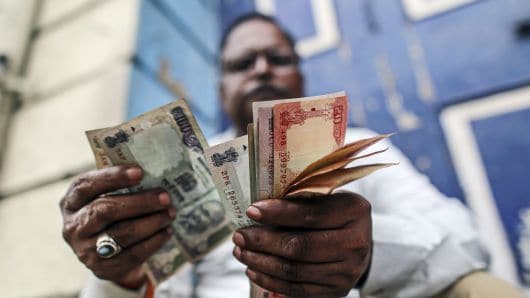
Cryptocurrencies may see a boost between China and the U.S., as the American president Donald Trump has signed an executive order banning financial transactions with eight China-based payment applications. Following the signing of Trump’s new executive order, popular payment apps including Alipay, Wechat Pay, and Tencent’s QQ will be banned in America in 45 days.
According to the latest executive order signed by U.S. President Donald Trump, Americans will be prohibited from transacting with eight different Chinese payment applications. Transactions processed with these apps will be prohibited in 45 days according to Trump’s latest edict. The applications that fall under Trump’s ban include WPS Office, QQ Wallet, Alipay, Camscanner, Shareit, Tencent QQ, Wechat Pay, and Vmate.
Trump’s administration claims the prohibition has been enacted for national security reasons and it follows the executive order Trump signed to ban the China-based app Tiktok. In August, Trump signed that specific order against any transactions between Tiktok’s parent company, Bytedance. The latest order against eight different Chinese payment apps says the ban was invoked for national security reasons as well.
“The pace and pervasiveness of the spread in the United States of certain connected mobile and desktop applications and other software developed or controlled by persons in the People’s Republic of China… continue to threaten the national security, foreign policy, and economy of the United States,” the Trump administration’s order insists.
The analyst Michael Gogel told his 4,800 Twitter followers that the executive order was invoked over the digital yuan and decentralized cryptocurrencies like bitcoin. “It has everything to do with the digital yuan and digital currencies like bitcoin that U.S. President Donald Trump signed an executive order on Tuesday to ban transactions with eight Chinese software apps including Alipay and Wechat Pay,” Gogel tweeted.
The analyst added:
Interesting to note that on the same day the New York Stock Exchange decides to 180 and reneges on the delisting action in relation to China Telecom, China Mobile, and China Unicom (Hong Kong).
Back in September 2020, the bitcoin proponent, Sylvain Saurel, also wrote a blog post about Trump banning these payment apps and how it would benefit bitcoin. “Financial transactions between the United States and China, or other countries in Asia, will have to be done through another channel,” Saurel stressed in his blog post. “We are talking about several hundred billion dollars exchanged each year.”
The author further added:
Bitcoin therefore fully meets the need that would emerge for millions of people from the Chinese diaspora living in the United States in the event of a complete ban on Wechat. Bitcoin also has the advantage of being completely politically neutral. At a time when a new cold war is starting between China and the United States, such neutrality is a significant asset.
If the Trump administration gets away with prohibiting transactions using these eight applications, Asian Americans and their families living in Asia will likely be affected negatively. However, the ban could be stopped, as a judge recently implemented a preliminary injunction against Trump’s recent Tiktok ban, as it’s been met with adversity. Further, Reuters reports that China’s Ministry of Commerce also gave a statement concerning the payment app ban, and the entity said it goes against “fair competition.”
Additionally, the U.S. Secretary of Commerce Wilbur Ross supported Trump’s decision and said he backs the President’s “commitment to protecting the privacy and security of Americans from threats posed by the Chinese Communist Party.”
Moreover, Ross insisted that the Commerce Department will “begin implementing the E.O.’s directives, including identifying prohibited transactions” in 45 days.























